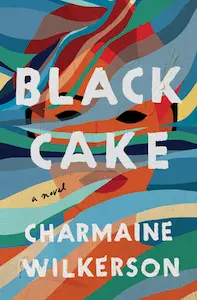Black Cake - Summary
Charmaine Wilkerson

Introduction
In the powerful and thought-provoking novel “Black Cake” by Charmaine Wilkerson, readers are taken on a journey through the lives of three generations of women in a Jamaican family. Set against the backdrop of social and political change, this book explores themes of identity, race, and the lasting impact of colonialism. Through vivid storytelling and compelling characters, Wilkerson creates a narrative that not only captivates readers but also sheds light on the complexities of Jamaican history and the struggles faced by its people.
The Struggles of Identity
One of the central themes in “Black Cake” is the struggle for identity faced by the characters. From the protagonist, Myrtle, who grapples with her mixed-race heritage, to her daughter, Marcia, who questions her place in a society that values lighter skin tones, Wilkerson delves into the complexities of racial identity in Jamaica. An example of this struggle can be seen when Myrtle reflects on her own appearance, stating, “My skin was neither black nor white, but a mixture of both. I felt like an outsider in my own country, never fully belonging to either group.”
The Impact of Colonialism
Wilkerson skillfully weaves the lasting impact of colonialism throughout the narrative of “Black Cake.” Through the experiences of the characters, readers gain insight into the deep-rooted effects of British rule on Jamaican society. Anecdotes from the book illustrate this impact, such as when Marcia discovers her grandmother’s diary and reads about the harsh working conditions on the sugar plantations during slavery. This revelation not only deepens Marcia’s understanding of her family’s history but also highlights the systemic oppression that still lingers in Jamaica.
Women’s Roles and Empowerment
Another prominent theme in “Black Cake” is the exploration of women’s roles and empowerment. Wilkerson portrays strong and resilient female characters who navigate the challenges of their time with courage and determination. For instance, Myrtle’s mother, Violet, defies societal expectations by becoming a successful businesswoman, breaking free from the limitations imposed on women during that era. This example serves as a reminder of the strength and resilience of Jamaican women throughout history.
The Significance of Food
Throughout the novel, food serves as a powerful symbol of tradition, culture, and connection. Wilkerson expertly incorporates descriptions of traditional Jamaican dishes, such as black cake, to evoke a sense of nostalgia and to highlight the importance of culinary traditions in shaping cultural identity. Anecdotes from the book, such as Myrtle’s memories of baking black cake with her grandmother, not only add depth to the narrative but also emphasize the role of food in preserving heritage and fostering a sense of belonging.
Social and Political Change
“Black Cake” is set against a backdrop of significant social and political change in Jamaica. From the struggles for independence to the rise of Rastafarianism, Wilkerson skillfully intertwines historical events with the personal stories of her characters. This blending of fact and fiction creates a rich and immersive reading experience, allowing readers to gain a deeper understanding of the challenges faced by Jamaican society during this transformative period.
The Complexity of Mother-Daughter Relationships
The complex dynamics of mother-daughter relationships are explored in “Black Cake” with great sensitivity and depth. Wilkerson delves into the tensions and misunderstandings that can arise between generations, particularly when it comes to issues of race and identity. An example of this complexity can be seen in the strained relationship between Marcia and her mother, as they navigate their differing perspectives on beauty standards and societal expectations. Through these relationships, Wilkerson highlights the universal struggles faced by women in their quest for self-acceptance and understanding.
Love and Loss
Love and loss are recurring themes in “Black Cake,” adding emotional depth to the narrative. Wilkerson explores the complexities of romantic relationships, familial bonds, and the pain of separation. Anecdotes from the book, such as Myrtle’s heart-wrenching farewell to her childhood sweetheart as he leaves for war, evoke a sense of longing and the bittersweet nature of love. These moments of vulnerability and loss serve to humanize the characters and make their stories all the more relatable to readers.
The Power of Resilience
Resilience is a central theme that runs throughout “Black Cake.” The characters in the novel face numerous challenges, from racial discrimination to personal tragedies, yet they find the strength to persevere. Wilkerson’s portrayal of their resilience serves as an inspiring reminder of the human capacity to overcome adversity. An example of this resilience can be seen in Myrtle’s determination to create a better life for herself and her family, despite the obstacles she faces. Her unwavering spirit resonates with readers and leaves a lasting impression.
Conclusion
In “Black Cake” by Charmaine Wilkerson, readers are treated to a captivating and poignant exploration of identity, colonialism, and the power of resilience. Through the lives of her characters, Wilkerson sheds light on the complexities of Jamaican history and the struggles faced by its people. With its engaging storytelling and thought-provoking themes, “Black Cake” is a must-read for anyone seeking a deeper understanding of the human experience and the lasting impact of societal forces.